by Denise Crawley
Florida’s scorching summers can leave us parents feeling overwhelmed, searching for affordable, educational, and stress-free ways to keep our children’s minds active and engaged during their break from school.
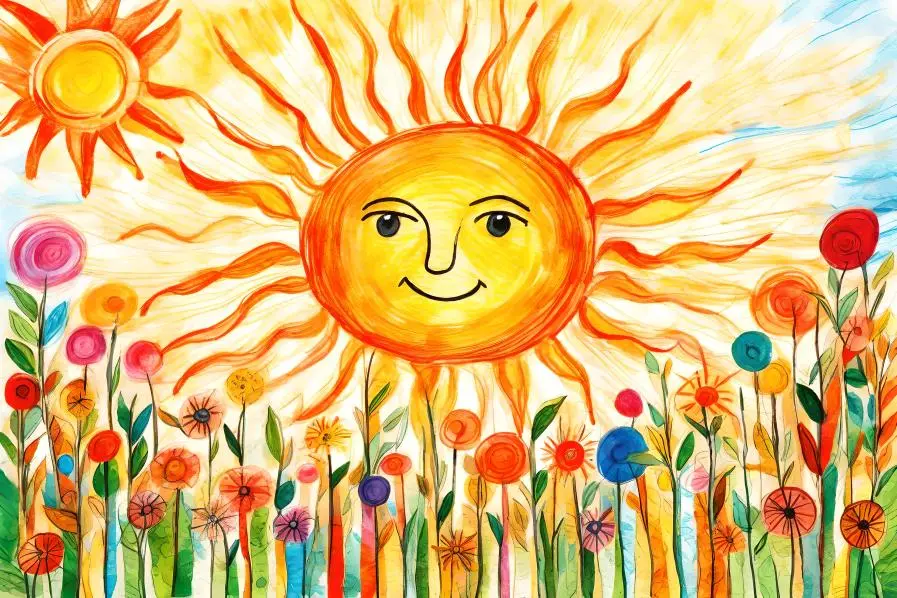
But what if I told you that you already have a magical world of learning right outside your door, waiting to be explored, and it’s free?
Transform Your Garden into a Classroom
Every child is unique in their own way, including how they learn and connect with the world. By understanding their learning style, you can unlock their full potential and create an awesome backyard that caters specifically to them.
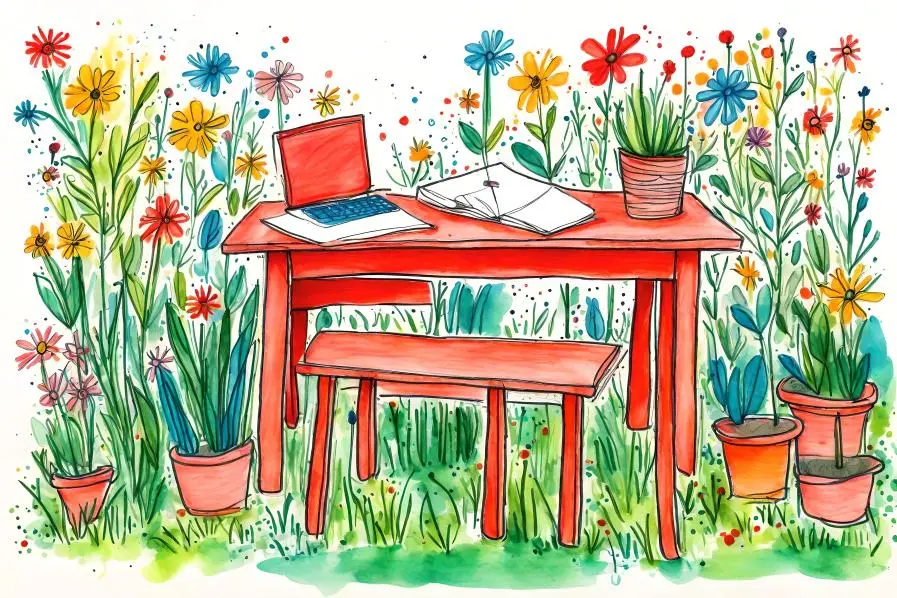
Read on to explore the different types of learners. Discover which ones resonate with your children so you can design your garden to maximize their learning and enjoyment.
Visual Learners: The Colorful Corner
These learners process information best when they can see or visualize it. They prefer using images, maps, graphs, and other visual aids to understand and remember information.
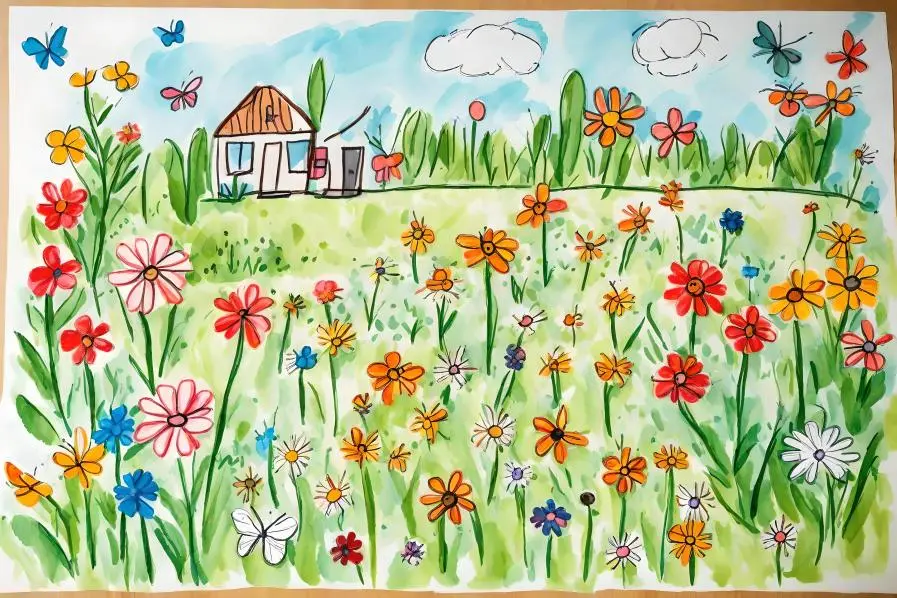
- Choose a section of your garden: This will be the dedicated space for your visual learner.
- Use colorful plant markers: Label each plant with its name and a fun fact about it. This will help your child associate the plant with its characteristics.
- Create a garden map: Draw a simple map of your garden layout. This will help your child understand the spatial relationships between different plants.
Verbal Learners: The Wordy Wonderland
Verbal learners excel at both spoken and written language.
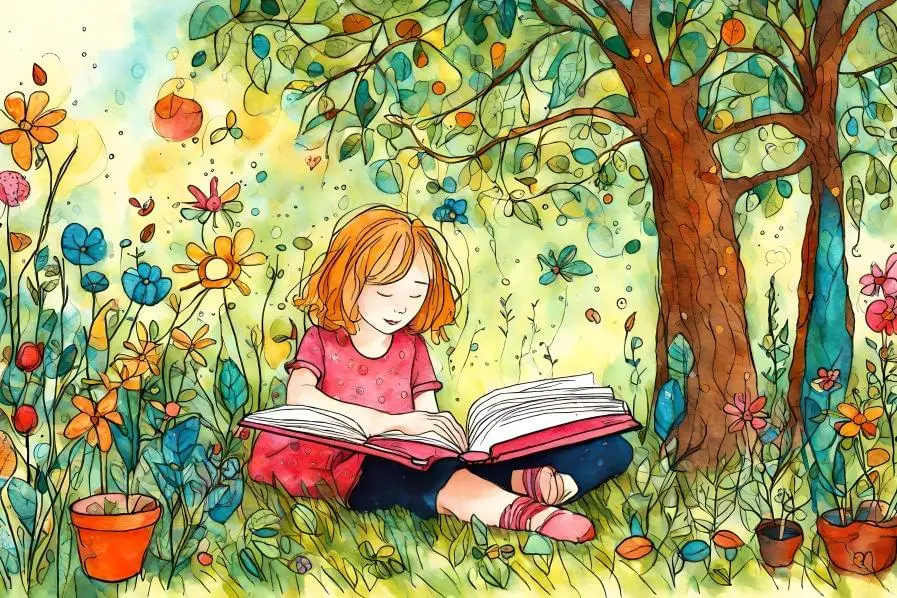
They find it easier to express themselves and understand others through words and enjoy reading, writing, and word games.
- Set up a comfortable seating area: This will be the space where your verbal learner can read, write, and learn.
- Start a garden journal: Encourage your child to write about their observations, thoughts, and learnings from the garden.
- Discuss plant stories: Share interesting stories or facts about each plant in your garden to engage your child’s interest.
Logical Learners: The Patterned Paradise
Logical learners use reasoning and systems to understand concepts.

They enjoy puzzles, experiments, and figuring out how things work, often excelling in math and science.
- Involve your child in garden planning: Let them calculate how much space each plant needs and where it should be planted.
- Create a garden timeline: Track the growth of each plant and discuss the patterns and cycles in nature.
- Introduce problem-solving activities: For example, figuring out how much water each plant needs or how to protect plants from pests.
Auditory Learners: The Symphony of Sounds
These learners retain information best when they hear it.
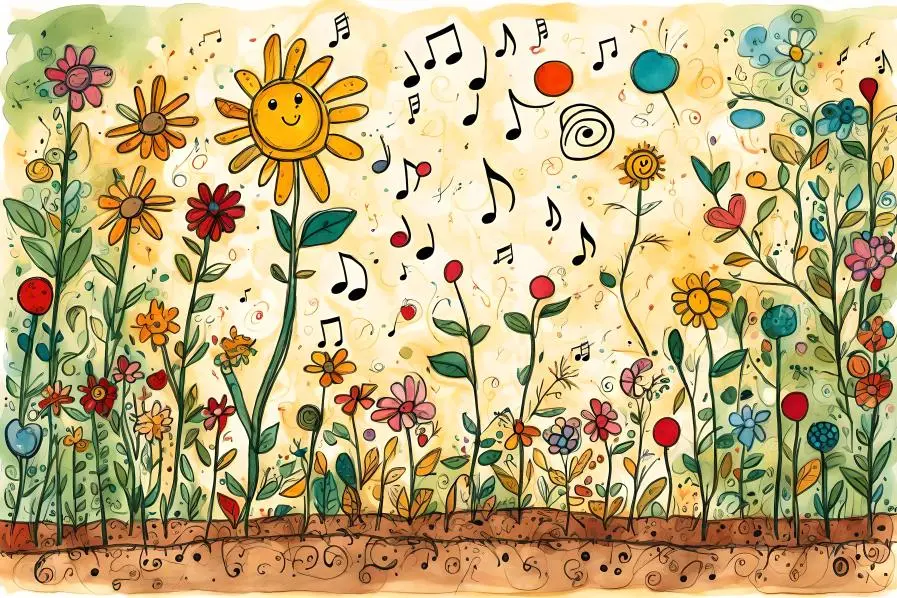
They benefit from discussions, and lectures, and may even read text out loud or use songs to help memorize information.
- Create a quiet corner: Choose a peaceful spot in your garden where your child can listen to the sounds of nature.
- Introduce sound-making elements: Add wind chimes, bird feeders, or a small water feature to your garden to create a variety of sounds.
- Encourage active listening: Spend time with your child in the garden, listening to and discussing the sounds you hear.
Social Learners: The Community Circle
Social learners learn best when they’re interacting with others.
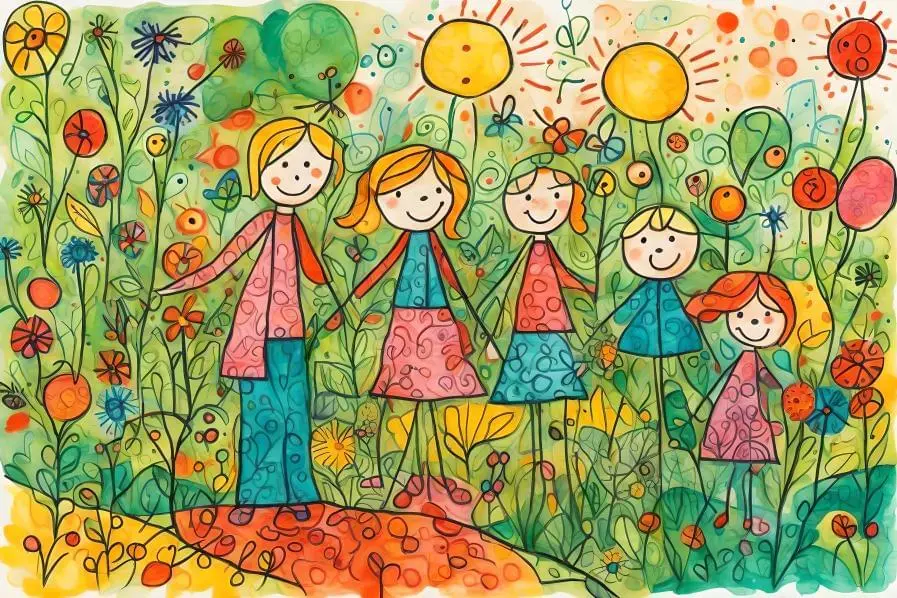
They thrive in group work, discussions, and social activities where they can learn from and with others.
- Designate a group activity area: This could be a larger seating area or a communal planting bed.
- Plan garden-based group activities: Organize activities like group planting, garden tours, or a mini garden party.
- Encourage teamwork: Assign tasks that require teamwork, like building a birdhouse or setting up a compost bin.
Intrapersonal Learners: The Personal Patch
Intrapersonal learners prefer to work alone and use self-study.
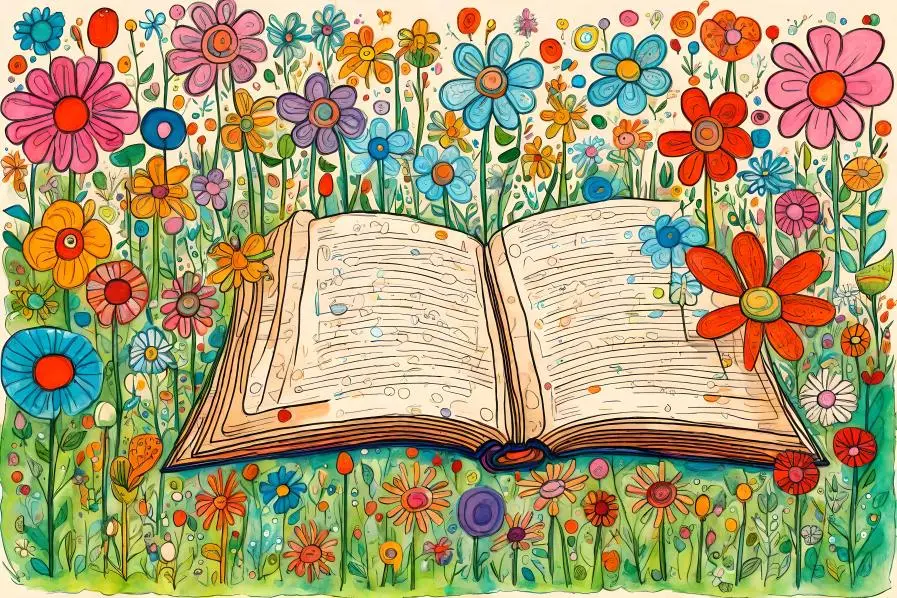
They are self-aware, enjoy working at their own pace, and often reflect on their own thoughts and feelings to understand concepts.
- Provide a personal gardening space: Give your child their own small plot or pot to take care of.
- Encourage independent learning: Provide books, tools, and resources for your child to explore gardening at their own pace.
- Respect their space: Allow your child to make decisions about their personal garden space and learn from their experiences.
Physical Learners: The Hands-On Haven
Physical learners, or kinesthetic learners, learn best through movement and hands-on work.
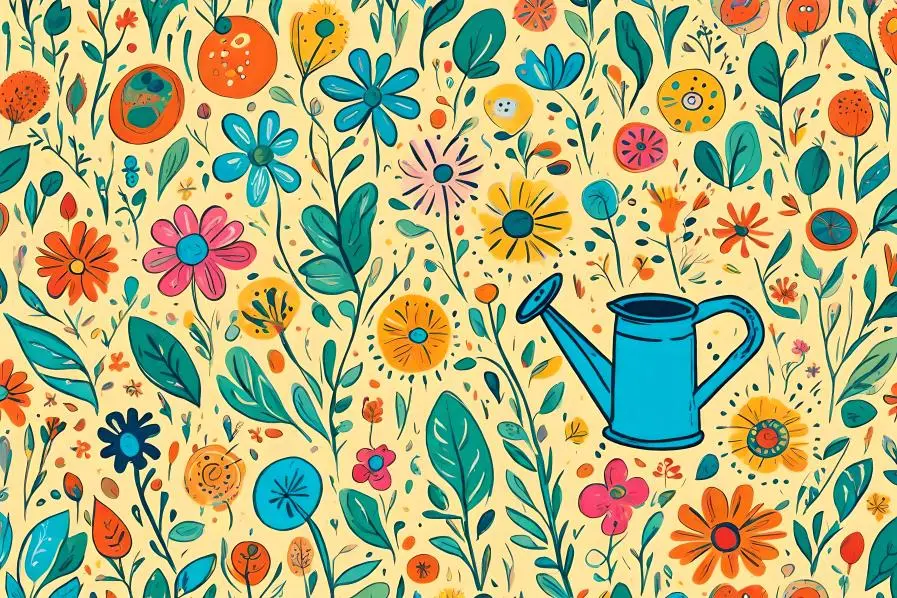
They enjoy using their body and sense of touch to explore and learn about the world around them.
- Create a hands-on activity zone: This could be a planting bed, a compost pile, or a DIY potting station.
- Involve your child in physical tasks: Let them dig, plant, water, and harvest.
- Teach through doing: Show your child how to do a task, then let them try it on their own.
Naturalistic Learners: The Wildlife Wonder
Naturalistic learners learn best through interacting with the natural world.
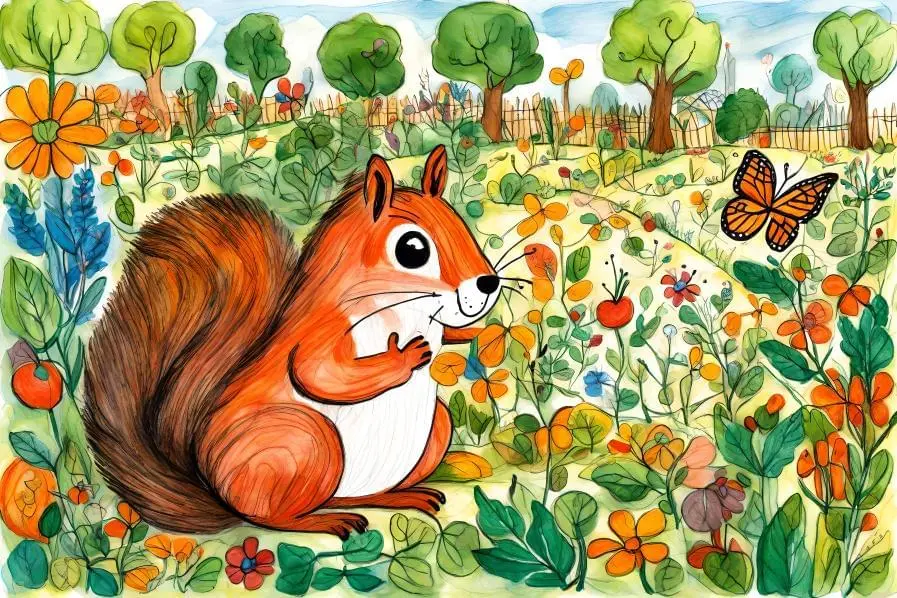
They enjoy outdoor activities and have a strong connection to animals, plants, and other elements of nature.
- Create a wildlife-friendly corner: Plant native plants, set up a bird feeder, or create a small pond to attract wildlife.
- Encourage observation and interaction: Spend time with your child observing the wildlife and discussing their behaviors.
- Introduce nature-based projects: For example, building a bug hotel or creating a butterfly garden.
Growing Forward: Cultivating Connections
As we’ve learned, gardening is more than just growing plants; it’s an opportunity to bond with your child, create lasting memories, and develop essential life skills. If you have any questions or need guidance on creating your perfect space, don’t hesitate to visit Rockledge Gardens and ask us for help!
Little Bugs Club Homeschoolers Day.
We are excited to invite you and your children to join us at the Little Bugs Club Homeschoolers Day. Despite its name, the event is open to all children who like to learn, not just homeschoolers.
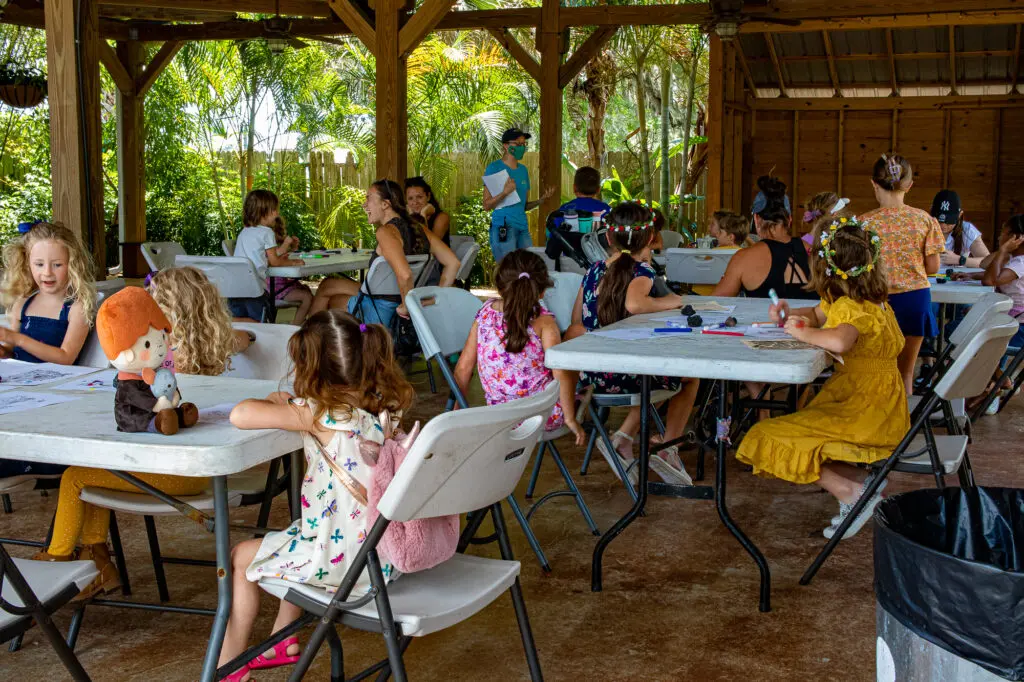
It’s a day dedicated to celebrating the joy of gardening with kids and it’s an excellent opportunity for you and your children to connect with fellow gardening enthusiasts, gain inspiration, and exchange ideas for creating your own backyard paradise.


